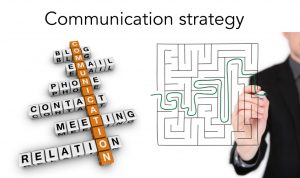 A Public Relations practitioner in many cases is a jack of all trades, master of some. Each specialist practices the trade in their own distinctive manner with core concepts in place. When choosing professionals to assist in your business strategies, it’s important to know how they conduct Public Relations techniques.
A Public Relations practitioner in many cases is a jack of all trades, master of some. Each specialist practices the trade in their own distinctive manner with core concepts in place. When choosing professionals to assist in your business strategies, it’s important to know how they conduct Public Relations techniques.
At Aubia Communications, I approach Public Relations from a strategic relationship-building standpoint. I earnestly believe that for a company to prosper, it must be willing to put the effort into developing good working relationships with the audiences it depends on for success. In consulting, I use strategic communications planning to develop a way organizations can establish, strengthen and maintain these relationships to influence opinions and actions toward its products and services.
If you ask Public Relations professionals exactly what it is they do, you may find them giving you a long list of actions. It can be difficult to pinpoint a definition of the trade due to all that it encompasses. There is the Public Relations Society of America’s newly revamped definition that states the business is “a strategic communications process that builds mutually beneficial relationships between organizations and their publics.” Then there is Harold Burson’s definition, partially formed by Edward L. Bernays’ “Crystalizing Public Opinion,” defining Public Relations as “an applied social science that influences behavior and policy, when communicated effectively, motivates an individual or group to a specific course of action by creating, changing or reinforcing opinions and attitudes. Its ultimate objective is persuasion that results in a certain action which, to succeed, must serve the public interest.”
I’ve always been partial to the definition supplied by Scott M. Cutlip, Allen H. Center and Glen M. Broom in their book “Effective Public Relations.”
“Public Relations is the management function that establishes and maintains mutually beneficial relationships between an organization and the publics on whom its success or failure depends.”
To build trust and credibility in a brand, Public Relations needs to be a central function of an organization’s management structure. Through relationship development based on ethical practices, Public Relations leads a business through the journey to success.
As an organization begins, the focus is on establishing its foundation. The paint is drying, the sign is hanging, and the merchandise is lining the shelves. The owner is working on how he will fill his first order while the employees are putting together the product. A few customers will stumble across the organization, maybe buy a few pieces, and that will work for the small business at first. Eventually, though, interest in the fledging entity will wane without Public Relations as part of the business plan. Without developing strategic relationships with those needed audiences, such as the target market for the product, the community where the organization exists, and industry partners that recognize the business as a legit service provider, an entity cannot survive.
The small business owner or non-profit organization director will begin to understand that without practicing basic communications strategies, the entity will surely perish. If the clients don’t know of the company’s existence or don’t yet trust the product, they will not buy into it. If the locals don’t view the organization as a value to the community, they will not support it. If the industry doesn’t acknowledge the entity as a valid authority, it won’t advocate for it.
The smart entrepreneur will start researching what can be done to develop a relationship with those target audiences and discover Public Relations in the process. He will want to know what the vocation is, how it works, and what it offers to accomplish business objectives.
Public Relations can seem daunting to those without experience in the field. The tasks of the trade can overwhelm some entrepreneurs with everything that it can accomplish and in the many ways it can reach those goals. Experts in the industry, though, can help you to research, plan, implement and evaluate what strategies and tactics are most suitable for your unique needs.
Working with each client on an individual basis, a course of action is developed to achieve the results that best affect the bottom line. It could be as simple as providing copy editing for an established newsletter that draws more readers all the way to creating a full strategic communications plan to raise awareness among your target audiences about a new business venture. Aubia Communications works with you step-by-step to provide the best practices in Public Relations while teaching you what the trade is and what it provides. I’m there to be your advisor and show you how to apply these lessons to your everyday business approach.
As your organization grows, you will encounter dilemmas and crises. You’ll make mistakes, you’ll be criticized, and your business will be in danger of losing trust and credibility you’ve worked so hard to build. With crisis communications planning and counsel, you will effectively deal with these difficult times to come out with a strengthened reputation and ability to thrive in the face of conflict.
When new opportunities arise for your organization, you no longer have to fear how you will develop beneficial affiliations that secure audience interest. From the journey you’ve taken with Aubia Communications, you will have the Public Relations strategies and tactics in your toolkit to be able to move your business forward. You’ll know the benefit of Public Relations, and you’ll be able to mentor industry partners about how you’ve reached your goals.
Public Relations is essential to the executive decision process for an organization to attain its business objectives. Do you think Public Relations is vital to the business journey to success? How would you approach your own journey?



